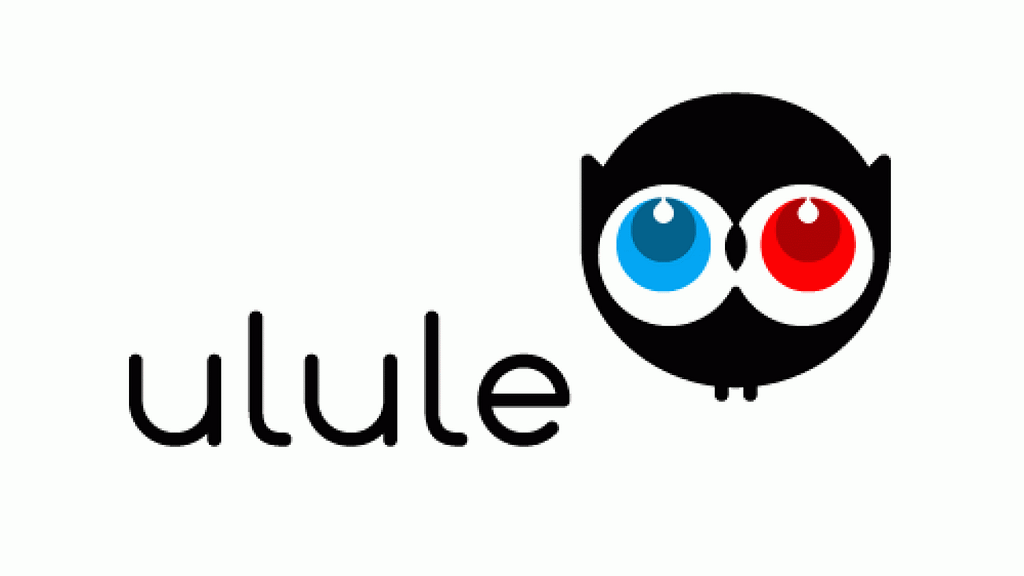We’ve all been there. “Monetize podcast” has been on your to-do list for a while, but you just aren’t sure where to start. 🤔
You’re in luck! This blog post will help you by describing several different options to start making money. We will cover:
- Selling products: Merchandise for fans
- Affiliate marketing: It is as easy as generating a link or a code
- Partnerships and Sponsorships: The power of the influencer
- Consulting: Share the knowledge and experience you have built up
- Subscriptions: Access to premium content
- Crowdfunding: Tap into your community support
- Advertising: Be Don Draper, but nicer
But before we start, let’s talk about high expectations. You’ve probably seen podcasters on social media who are able to make enough money from their episodes to fully support themselves and their show. That’s great! And, yes, that is possible for you too!
But first steps first: Don’t expect to be able to live off your podcast earning from the very start. Think of it as a supplement to your current income or a way to make the recording adventure viable. Generating money through your podcasts will take time, creativity, and hard work. 💪
Now that the introduction is over, let’s get practical!
7 Ways to Monetize Your Podcast in 2025
1. Digital Storefront

People love swag, especially swag from their favorite podcast!
So why not start an online store? It’s a great way to make money while increasing your visibility.
To start, think about what your listeners would want and what goes with your marketing brand. Common products to sell are t-shirts, tote bags, mugs, etc. You can put a logo on them or even a cartoon of the host. 👕
Whatever you decide to sell, make sure add a little personalized attention when you send the order, such as a little thank you note. A small gesture that won’t cost you much and it will certainly delight your listeners. 😃
It does usually cost a little money up front to create a website with a platform for selling merchandise. Plus the online payment method will take a small percentage of a sale or charge a fee.
Of course it also takes money to create the merchandise. 💰
Depending on the products, you may need to order a certain amount. If that is the case, really think through how many you should buy so you are not stuck with a ton of your own merchandise.
Other times you can just order a product as soon as a customer indicates they want one. This is usually the less risky option, but you will have to pay more per item.
Do not let deter you! Again, this can be a great way to make a little money and also increase your brand visibility!
2. Affiliate Marketing
Affiliate marketing is when a business will pay a small amount of money you if you successfully get one of your listeners to buy their product. The more listeners you convert into customers for the business, the more money you make! 💸
Often this monetization technique involves the host reading a live ad to the audience and giving out a code they can use when they purchase the product or services in the ad. Sometimes it involves including a special link in the episode show notes.
Whether it is a code or a link, there is some way for the advertising business to recognize that the customer is coming to them because of your podcast. 🧑🚀
Of course you need to make sure that the business and products you are marketing are of good quality. You don’t want to lose some of your audience because they had a very bad experience with the business.
One of the biggest benefits of this method is that you do not have to spend any money up front or at all. Besides the risk of possibly recommending a bad product or company, there is not ton of risk in this option.
Also you do not have to reinvent the wheel here. A lot of companies already have an affiliate link program and are looking for folks like you! Since the company only has to pay you if someone actually buys one of their products, it is low risk for them too. 👍
The downside is that you only get rewarded if the person remembers to use your affiliate link or input your affiliate code when making the purchase. You may have been completely responsible for them buying the product, but you do not get any kind of payment.
But lots of people will remember to use your affiliate link so go ahead and give it a try!
3. Partnerships and Sponsorships

This monetization method is similar to affiliate marketing, but rather than getting paid per customer, a podcaster is paid a lump sum to be a brand partner. 🤝
The idea is that a podcaster is a micro-influencer and the sponsoring business benefits by simply being shown alongside the micro-influencer.
The sponsorship route sounds great, right?
Well, in order to make money this way, you do need to have a strong following not only via the audio content of your podcast, but also on social media and different communities. You need to be able to show potential sponsors your listener data as well as your brand specifics. 📊
If you go this monetization route, be sure to check out our blog posts where we talk you through how to reach high audience numbers, as well as how to get partners or sponsors onboard.
4. Consultation
More and more brands are starting to use podcasts, because they have finally understood that it is an excellent way to do storytelling or to work on their brand content while fully captivating their targets.
So why not take advantage of your experience to offer your skills and know-how to help professionals? 🧑💼
You can approach them by proposing to create a series of custom podcasts for them, independent from your main podcast.
You can also put on a paid workshop event or even multiple courses about creating podcasts.
Think big! 🤩
5. Subscriptions
Subscriptions are when people pay for access to content. In podcasting world, this usually means audio content. 🎧
A lot of times a subscription is also referred to as a membership.
Some subscriptions are only for special events or premium content like bonus episodes.
Sometimes subscriptions are for quicker access to the content. All the episodes may be free, but they are released once every two weeks. If a listener wants to binge listen, they can buy a subscription so they can listen to all the episodes all at once. ⏩
Another kind of subscription is ad-free content. A listener can enjoy the content for free if they are willing to sit through ads, but if they don’t want to be annoyed by ads, they can buy a subscription to a version and doesn’t have any ads.
The final kind of subscription in podcasting is the least common, but it is still an option! It is when a listener needs a subscription to listen to any of the content at all! The reason this is so rare is that it is very hard to build an audience without any free content at all.
If you decide to monetize through subscriptions, be sure your hosting platform is up for the task! (Spoiler alert: Ausha is!) 🚀
6. Crowdfunding

Crowdfunding is when the listener community makes donations to the podcast. 🙏
This revenue may only be enough to cover some of the costs of recording the episodes, or it could be enough to pay the creators for their work.
Be sure to thank people who donate! Both a short written note and a shout out during an episode is a nice touch. ✍️
Consider having a target fundraising goal and then a special event when you hit it– the event does not need to be in person or anything. It can just be a celebration on your social media platforms or something.
If possible, give members of your community to make small, recurring donations. That way it is easier on their monthly budgeting and yours!
The most important thing if you choose this method is transparency. Why are you raising the money? What are your plans? And how did you use the money. Keep records of everything, not just to have in case someone asks, but also so you can proactively update people on how their money is being put to amazing work. 😃
But along with getting all the details right, you need to also keep your donor communications aspirational. Yes, their money may have gone to buying you an editing software, but they also want to know how it helped in the big picture. What are all of you working together to achieve? Describe your shared vision. Who are you helping? How? Why?
Make sure to do your research before picking a crowdfunding platform. Some take percentages, some take fees, some take all the money if you do not hit your goal. Below are some examples of some crowdfunding platforms you can use.
Here at Ausha, we make sure podcasters can easily utilize this monitization route by building websites or Smartlinks where podcasters can highlight and list their crowdfunding link. 🔗
7. Advertising
Advertising is probably one of the first things that a podcaster thinks of when they think of how to make money from their episodes. And for good reason!
Television, YouTube, newspapers, media as we know it is funded by advertising. 💰💰💰
So what are the best ways for podcasters looking to get into the action?
For non-audio ads, which would be ads on your podcast website, you can go with Google’s Adsense. It is a giant in the industry and you can’t really go wrong. 🤷
Advertising slots for podcasts
For audio ads, you will be looking at selling pre-roll, mid-roll, and post-roll ads. As you may guess, pre-roll ads play before the start of an episode, mid-roll adds plays in the middle, and post-roll ads play at the end. 🤓
Mid-roll ads are considered the most valuable placement because that is when people are most likely to listen to them. Since they are in the middle of the episode, the listener has probably tucked away whatever listening device they were using and it is too inconvenient for them to find it and push ‘skip’ during the ads.
Pre-roll advertising is considered the second most valuable because more people listen to the beginning of an episode than the end. In other words, you do not have to worry if someone only listens to half an episode… your ad has already been played!
Post-roll advertising is the least valuable but that does not mean it is completely without value! Podcast vary in length all the time. How many times have you been surprised that an episode is already over? The ads pop up and you are still locked in, listening. 🥰
Advertising formats for podcasts
There three main kinds of advertising formats on podcasts. We will quickly go through each of them.
Host Reads an Ad
This is one of the most popular and effect formats. Listeners love theirs hosts! They pay attention to what they say. In a lot of ways, listeners trust them when they talk about products or brands. 🤝
Sometimes the host reads the ad while recording the podcast. In other words, it is baked right in. Regardless of whenever or wherever you listen to the episode, the ad is there.
Other times the host records the ad separately and will dynamically insert it into episode streaming and downloads. This helps with a number of things:
First it keeps the episodes more evergreen. If someone tunes into a popular episode you did five years ago and they hear you reading an ad about tickets to a 2018 concert, it is going to make them a little confused and maybe feel put off.
Second, it allows you to end an advertising campaign after a number of people have heard the ad. If a company paid you $100 for 1,000 listeners to hear there ad, then once 1,000 listeners have heard the ad, you take it off. That way the company is not basically getting free, premium advertising space in perpetuity! 👀
Completely stand alone ads
These are ads that are not baked into the episode and are instead dynamically inserted, just like some host read ads. The difference is for these ads is they are not host read or related to the show at all. This kind of ad can be plugged into any show, no problem, just like a TV commercial.
Of course the advertiser wants the ad to be heard by a certain demographic of people, their target audience, but as long as that audience is there, they do not care which particular show it is. 💁
These ads are usually handled by advertising agencies and/or podcast networks. Usually the podcaster gets paid a portion of the ad revenue, depending on how many listeners were exposed to the ad during their episodes.
Sponsored Segments
Sponsored segments go back to the early days of radio and television. Rather than having the advertising and the show be two separate things, there is just the show and the show has a sponsored segment or two.
That way it is baked into the show, but since it is relevant to the content of the show, it stays as ever green and timeless as the show.
For example, let’s say you have a travel podcast where you talk about vacations spots. You could have a sponsored segment by a bike shop. Maybe you call the sponsored segment “The Bike Scene by Wheel & Sprocket” where you specifically talk about the bike scene at the vacation spot– the best routes, etc. And at the end you say something like “And again thank you for our sponsor of this section, Wheel & Sprocket bike store. It has convenient locations across the midwest and online. Shop at Wheel & Sprocket!” 😎
See! This format can be really meaningful and fun!
How to get advertisers
Monetization of your podcast through advertising is great! The hard part is getting companies to agree to advertise on your show. There are three main ways to get advertisers.
Individual Approach
This is plain ol’ do-it-yourself-approach. It takes a lot of work, but in the end you get all of the reward.
First, you need to research which companies to approach. You need to know who your listener community is. Then you need to know which companies want to advertise to that community. 👨👩👦👦
Once you have all your data put together with a whole pitch deck that shows how great of an advertising platform your podcast is (be sure to list your podcast website), you need to start doing reach outs. You have to look up the right person at the company to contact as well as their contact information. Then you need to send a short, clear, and compelling email about why your show is the perfect fit for their adverting, and offer to schedule a phone call where you can give them more details.
Be sure to track all your correspondence and follow-up where necessary, without accidentally contacting the same company twice.
This is a lot of work, but it is definitely doable! Plus, once you get that advertising or sponsorship contract, the ad revenue is 100% yours. 🤑
Podcast Network
Podcast networks are when podcasters come together to build a mutually beneficial structure. Sometimes they help each other out with creating shows. Other times they come together to pay experts come in and teach courses on certain aspects of podcasting. It is also common for networks to put on a fun event for their membership. A lot of times they agree to market each others’ shows on their own online social media platforms. 📣
There are ton of options for podcast networks, but for the purposes of this blog post, let’s look at how they can help you sell ads and monetize your show.
Podcast networks can provide bulk ad purchasing options to companies. Maybe a company does not think it is worth their time to do an ad campaign for one podcast, but it would be worth their time if the ad was on a whole group of podcasts. 🎧🎧🎧🎧
Podcasts networks also distribute the workload when it comes to researching and pitching potential advertisers.
Of course sharing the workload also means sharing the ad revenue. So podcast networks can help you monetize your podcast, but you should take into consideration that you will have to share the profits.
Ad marketplaces
While these are relatively new, they are very popular. Basically ad marketplaces are online platforms where eager advertisers and podcasters come to find each other,looking for the perfect fit. 😍
The benefit of this method is that you do not have to do any cold calls or convincing companies that podcasting is a great advertising medium. The companies are already convinced!
All you need to do is prove to them that you have the listener community that they are looking for. 👈
The ad marketplace sometimes helps with creating template contracts, exchanging the money, etc.
Some times you have to get a paid membership to an ad marketplace, some times not. There are also different packages like basic level, mid level, and premium level. Every marketplace is different so be sure to do your research.
If it is not a membership model, and even sometimes if it is, the marketplace takes a cut of any ad deal that you make. So again, you do not have to do as much work, but you do not get all of the revenue. ⚖️
Closing
The bottom line is that there are many ways to monetize your podcast. It all depends on what is the best fit for you and your brand. 🧩
Of course, you don’t have to just pick one method to making money! You can pick as many as you have time for. You can also mix and match methods.
For example, you can ask for donations and, in return for donating, a listener gets access to premium episode recordings or special events. ✨
The best way to see what works is to experiment. See what you like. See what your audience likes. 🧑🔬
And remember that you can always pitch more than just an ad during your podcast. You can pitch companies to sponsor or advertise on your podcast’s social media, website, and even to your email list. You can even offer to put on a big advertising event where you record your podcast on the spot.
The possibilities of monetizing your podcast are truly endless. 🥳
Whatever advertising space or services you offer, just make sure you do it well!
Advertisers like to work with high-quality, respectable podcasts. They also like what they know and already have experience with. That means it is vital for you to develop a good reputation as being someone who is reliable and professional. Plus, it is always better to retain an advertiser than put in all the effort to find a new one.
All of this can feel overwhelming at times, but know that you can do it! We believe in you! 💜

Launch your podcast with Ausha
All-in-one platform to easily launch and grow your podcast.
Start for Free







